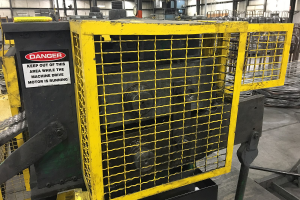Employers may have more room to appeal willful violations
What’s the difference between a willful OSHA violation and a serious one?
One answer: About $63,000 in penalties – the maximum for a violation classified as serious is $7,000, while the maximum for a willful violation is $70,000. With multiple violations possible in each citation, those numbers can grow quickly.
And now a ruling by the Occupational Safety and Health Review Commission could encourage more companies to appeal willful citations in hopes of having them reduced to serious.
A serious violation is one in which there is substantial probability that death or serious physical harm could result and that the employer knew, or should have known, of the hazard. A willful violation is one committed with either an intentional disregard of, or plain indifference to, OSHA regulations.
In May, the OSHRC reclassified 99 violations against Dayton Tire from willful to serious.
As related by Safety News Alert, the fines stemmed from an October 1993 incident in which a Dayton Tire employee in Oklahoma City died from injuries suffered when a machine activated unexpectedly.
What had been $1.975 million in fines for lockout/tagout violations dropped to $197,500, a 90% reduction.
The U.S. Court of Appeals, D.C. Circuit, had ordered the commission to reconsider the gravity of the fines because it said Dayton Tire made some effort to comply with the OSHA lockout/tagout regulations, so the violations weren’t willful.
“It takes a lot to be plainly indifferent” to OSHA regulations, the DC Circuit Court wrote in its opinion.
A stronger basis to contest
Now, in a blog post, attorney Shannon Young of Harmon & Davies writes this decision “gives employers an even stronger basis from which to contest willful OSHA citations.”
“What this means is that as long as an employer is acting in good faith to comply with OSHA regulations, even if OSHA later determines that the employer’s actions fell short of what was required under OSHA regulations, the employer should not be cited for a willful violation,” Young wrote.
An administrative law judge for the Occupational Safety and Health Review Commission appeared to be following that same logic in a second case. The judge ordered that a willful citation issued to a construction company be reduced to serious because the supervisor at the trench site was “inexperienced, uninformed and confused about how to protect employees.”
“The facts of this case do not establish that [the supervisor] possessed a state of mind that, if he were informed of the [OSHA] standard, he would not care.”
Subscribe to this blog to receive Jim Stanley’s updates about OSHA in your inbox or on your reader.


